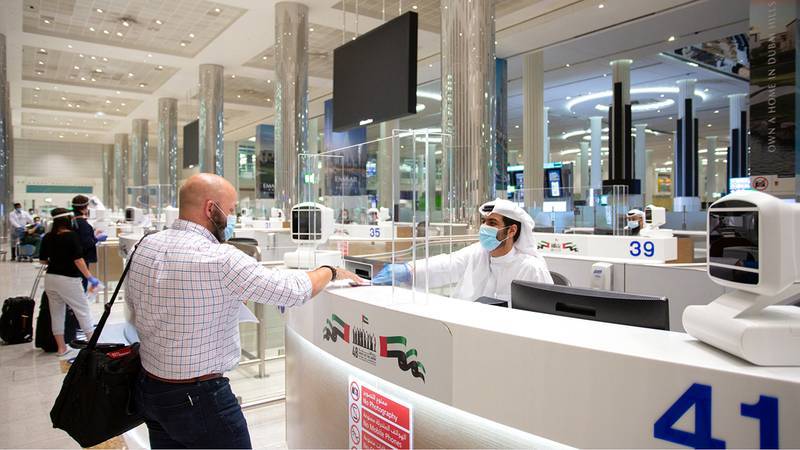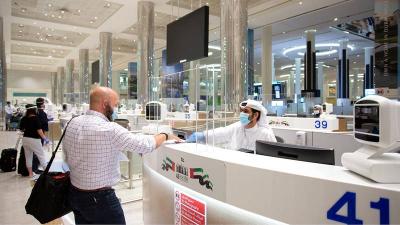The United Arab Emirates has distinguished itself regionally and locally, as well as ranking among the leading countries globally, in containing the repercussions of the emergence of the COVID-19 virus, both on humanitarian, social, economic, and educational levels. The humanitarian and charitable initiatives launched by the country's leadership have doubled, contributing to easing burdens on both citizens and residents. Community solidarity was the most prominent theme of charitable activities during the "COVID-19" period, as initiatives were intensified, inspired by the legacy of the late Sheikh Zayed bin Sultan Al Nahyan, may God have mercy on him, and his humanitarian approach, which has extended UAE goodwill to the farthest reaches of the world.
On the local level, the Emirates Red Crescent Authority began assisting those stuck in the country from all nationalities due to the COVID-19 crisis under the initiative "You're Among Your Family." The Authority communicated with stranded individuals of all nationalities to understand their current situations and ascertain their urgent needs, working immediately to provide them in order to ensure their peace of mind and stability.
The Authority provided 12 channels through which benefactors could offer support to those affected by the spread of "COVID-19." These included: supporting students during remote learning, covering tuition fees for students from low-income families, contributing to ensuring remote learning supplies, and a charity initiative from landlords, property owners, and real estate development companies to exempt tenants from paying due rents for a set period, reduce their amounts, or defer them, as well as deferred payment of rental installments, and contributions to cover part of the rent. Additionally, the "Reunion" initiative provided meals for workers' housing and travel tickets for those wishing to return to their homeland.
During the COVID-19 pandemic, the Cabinet made several decisions that positively impacted alleviating the effects of COVID-19 on the community, both citizens and residents. These included extending expired residency permits for residents and exempting those with expired permits from financial penalties until the end of 2020. Administrative fines for violations related to the services of the Federal Authority for Identity and Citizenship were suspended starting April 1, 2020. A temporary license was granted for using digital transaction technologies in notary services to facilitate all parties in completing their legal transactions, as well as extending the validity of government services that expired on March 1, 2020, for three months, and directing factories to support the health sector's needs in the country.
Several measures were taken in this context, such as approving vehicle registration without paying traffic fines or undergoing technical inspections, and reducing electricity and water bills by 20% for registered tourism, commercial, and hotel sectors. Economic support packages and government initiatives focused on alleviating the economic burdens during the crisis to prevent any negative repercussions of COVID-19 on various sectors in the country, facilitating the lives of citizens, residents, and visitors while protecting their health and safety, thus sustaining governmental work and its continuity across various agencies and sectors.
The Central Bank of the UAE adopted a number of measures and expansionary monetary policy measures at the federal level aimed at supporting the national economy and protecting consumers and businesses. This included approving lending standards, reducing capital requirements, and adopting new systems, including a financial support plan reaching 50 billion dirhams for loans and credit at zero cost for banks operating in the country, backed by guarantees. Additionally, another 50 billion dirhams was released from banks' additional capital reserves. Decisions were made to defer the collection of connection and service reconnection fees for shopping malls, retail outlets, hotels, serviced apartments, and factories for six months.
Banks provided individuals with banking facilities, including deferring due installments and interest on loans and credit cards for three months, allowing flexible payment of water and electricity bills, and deferring tuition fees without interest or fees. Loan repayments were postponed for three months without interest or fees in cases of unpaid leave, and fees imposed on canceling travel tickets paid with credit and debit cards were refunded, alongside the refund of cash withdrawal fees from ATMs using debit cards, and installment arrangement for credit card dues for school fees and food items, without interest or fees for six months.




